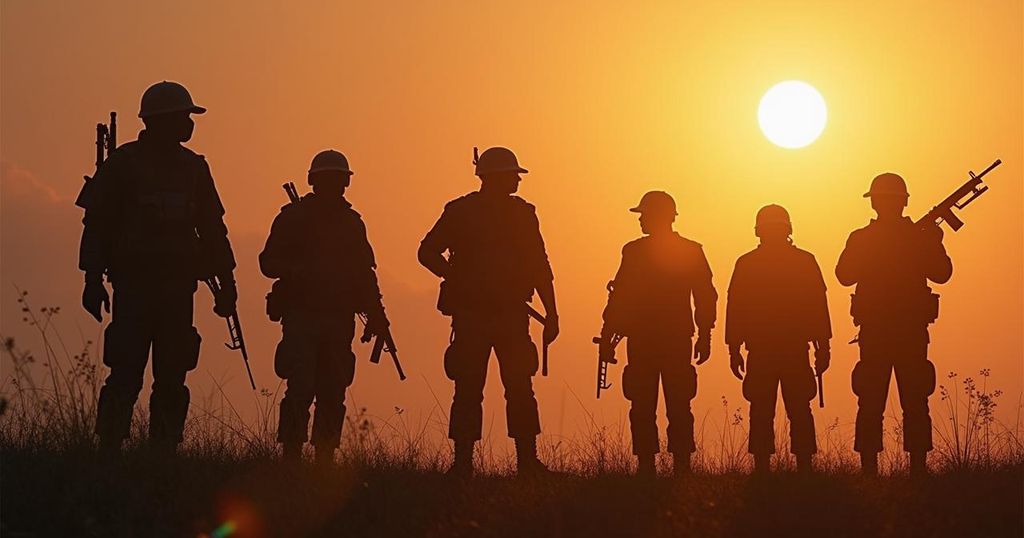Trial of Former British Soldier Daniel Khalife for Espionage Allegations Against Iranian Intelligence

Daniel Khalife, a former British soldier, is on trial for allegedly spying for Iran by stealing military secrets and attempting to aid Iranian intelligence. Evidence includes messages indicating his communication with Iranian handlers and actions suggesting espionage during his service, including a trip to Turkey to leave information for agents. Khalife denies all charges, as the case raises significant concerns about national security and military integrity.
Daniel Khalife, a former British soldier, is standing trial for allegedly spying for Iran and stealing sensitive military secrets. The court heard that Khalife traveled to Turkey in 2020, where he left a package intended for Iranian intelligence agents. Evidence presented in court included messages purportedly exchanged between Khalife and his alleged Iranian handlers through the encrypted messaging service, Telegram. In one message, a handler remarked: “We look forward to seeing you in Tehran … pal.” Khalife, who served in the Royal Corps of Signals, is accused of informing a handler of his plan to travel to Tehran, disguised as a holiday trip to Istanbul that ultimately did not go as planned. He allegedly expressed a willingness to work for Iran as a spy within the British military for over 25 years. Prosecution counsel Mark Heywood KC stated that Khalife had misappropriated sensitive UK military cryptography materials and captured images of specialized communications gear used by British special forces. Evidence presented included a spreadsheet with detailed data regarding UK military personnel, encompassing identities and promotions of soldiers from elite units like the SAS. The trial disclosed that Khalife had allegedly engaged with an individual connected to the Iranian Revolutionary Guards in 2019, afterward retrieving an envelope containing £1,500, placed in a dog waste bag in a London park. Shortly after acquiring his security clearance as a soldier, Khalife was noted to have photographed this transaction and subsequently made preparations for a potential flight to Turkey to meet with Iranian agents under the veil of tourism. Further testimony detailed Khalife’s alleged communication with Iranian intelligence escalating during his 2021 deployment at Fort Hood, Texas, where he was believed to have collected further intelligence. On September 6, 2023, Khalife escaped from HMP Wandsworth, where he was on remand for terrorism and espionage charges, by concealing himself under a food delivery lorry. Khalife is charged under the Official Secrets Act for allegedly gathering and disseminating information that could be advantageous to enemy forces, specifically Iranian intelligence, between May 1, 2019, and January 6, 2022. He also faces accusations of soliciting sensitive personal details regarding armed forces personnel which could facilitate acts of terrorism. Khalife has denied all charges against him and the trial proceedings are ongoing.
The case against Daniel Khalife unfolds against a backdrop of heightened concerns regarding espionage activities and security within the UK military. As a member of the Royal Corps of Signals, Khalife had access to crucial military communications and IT infrastructure, which may have positioned him uniquely to gather sensitive information potentially beneficial to foreign adversaries. The case sheds light on the ongoing risks posed by espionage and the vital importance of maintaining the integrity of military operations in the face of foreign intelligence threats. Khalife’s background, familial connections to Iran, and actions directed toward alleged Iranian intelligence operatives amplify the urgency of reviewing national security protocols and approaches to informant handling.
In summary, Daniel Khalife’s trial reveals serious allegations of espionage and the theft of sensitive military information intended for Iranian agents. The evidence presented in court suggests a deliberate and calculated effort on Khalife’s part to align himself with Iranian intelligence, spanning years and directly impacting the integrity of British national security. As the trial progresses, the implications of his actions on both military operations and broader defense strategies are of critical interest, especially in light of contemporary global security challenges.
Original Source: www.theguardian.com






